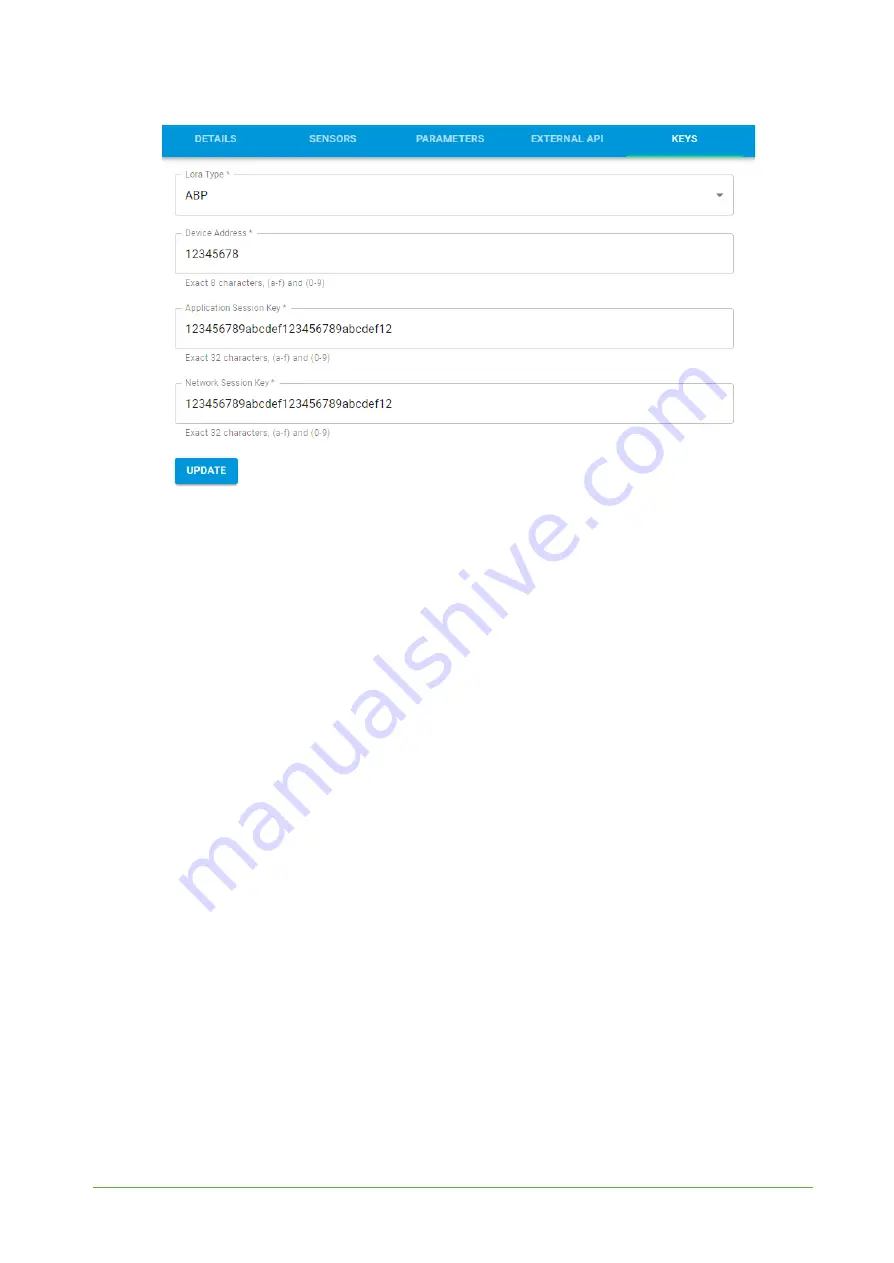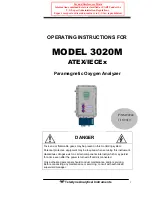
YO 360
User guide
v1.2
page 24/25
Figure 21
Node LoRa type configuration form.
6. When data is received by the server, you’ll notice that the ‘Last Seen’ column (‘NODES LIST’
tab) status changed from ‘never’ to a few ‘seconds ago’.
7. Open charts by clicking on the ‘OPEN’ button in Dashboard columns or by entering the
node’s ‘DETAILS’ tab (‘Node Name’ column link) and clicking ‘CHARTS’.
Adding node via bluetooth
1. Go to app.yosensi.io and log in.
2. You’ll see the default organization view. To switch to another organization, click on the user
avatar in the right top corner and select ‘Switch Organization’.
3. To create an application, press the bottom right ‘+’ button. Fill in the ‘Name’ and ‘Description’
fields and select ‘Select Application Profile’ which is the region definition.
4. Proceed to the application by clicking its name on the list, and press the ‘+’ button to add a
node. Choose the option ‘
Add via bluetooth
’. Select the device to add. Then the list with
devices available to connect to the application will appear. Choose one and select
‘Lora’
or
‘Helium’
if you want to connect to the Helium network in ‘Node Type’ field. The name of the
node will automatically be generated through the device model and Node ID (DEV EUI), with
OTAA key and DEV EUI filled in the spaces, press create.
Nodes added via bluetooth are in
Activation by Personalization mode (ABP).
5. When data are received by the server, you’ll notice that the ‘Last Seen’ column (NODES LIST’
tab) status changes from ‘never’ to a few seconds ago’.
6. Open charts by clicking on the ‘OPEN’ button in Dashboard columns or by entering the
node’s ‘DETAILS’ tab (‘Node Name’ column link) and clicking ‘CHARTS’.
Summary of Contents for YO 360
Page 1: ...YO 360 User guide v1 2...


































